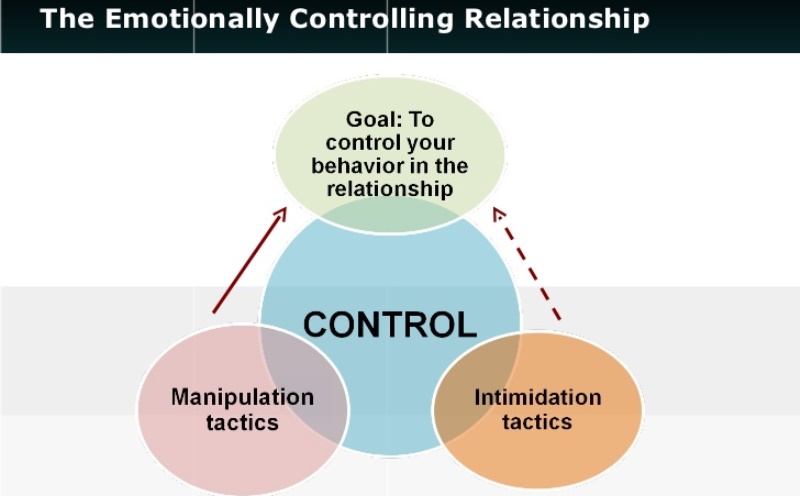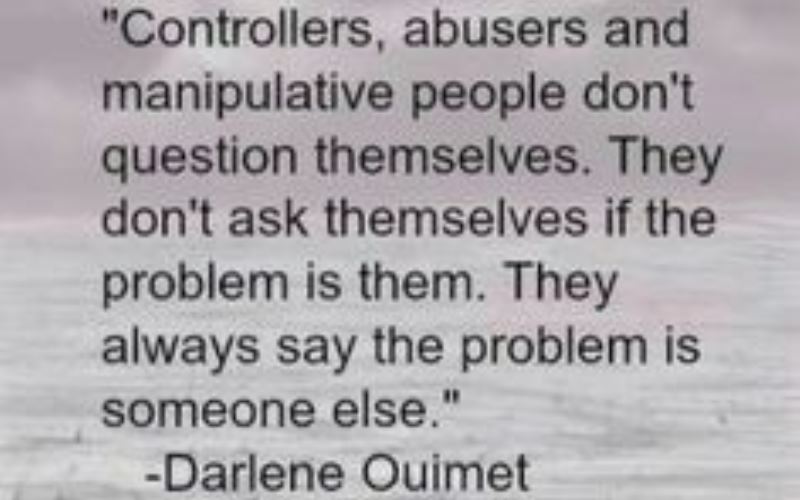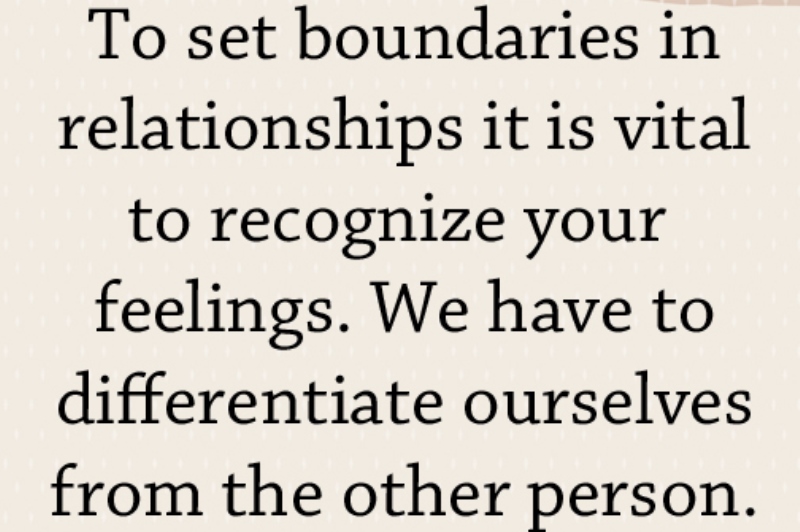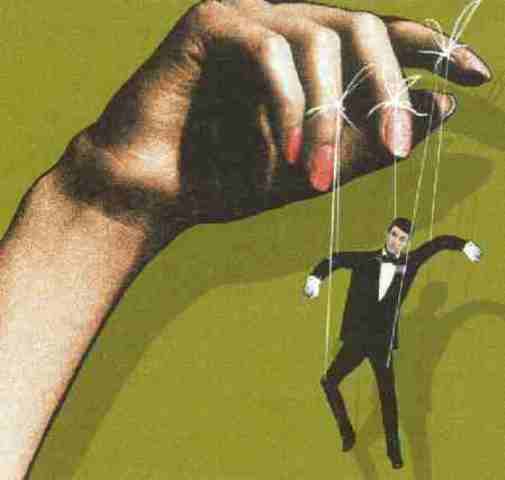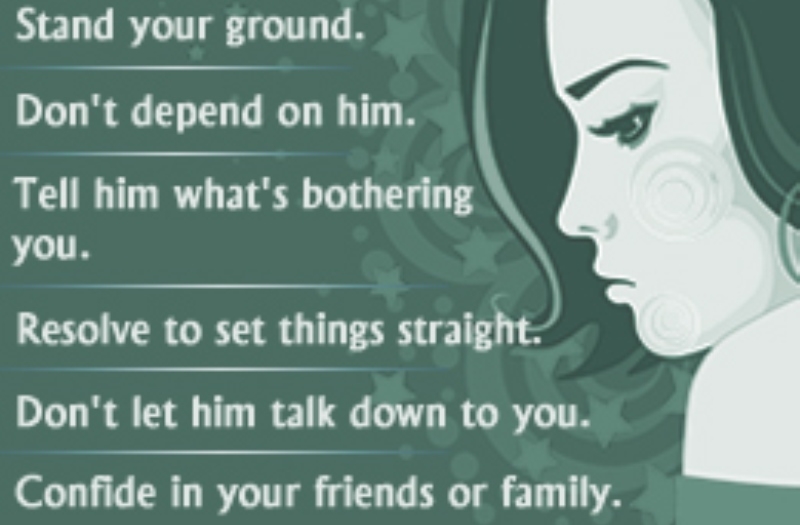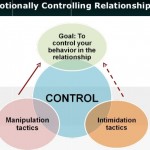Have your social connections become strained?
Have people started looking at you sideways?
Do conversations with friends and family get tense when your partner’s name pops up?
Are you doing things that fall outside the ambit of your moral, ethical compass?
Are you obsessing about activities that require you to be by yourself?
Have your goals and ambitions been pushed to a back burner because your partner is not in them?
Are you starting to question the validity of your own needs?
Do you feel threatened and afraid of an undesirable outcome, in case you choose not to conform?
If the answer to any/all of these is YES, you might be trapped in a controlling/manipulative relationship.
Suggested read: How important is it to set boundaries in a relationship?
An even balance of power or in plain terms, equality is a compulsory element of a healthy relationship. If power is distributed unevenly in your relationship, you might want to get it back to an even keel. Unequal power distribution leads to a distorted relationship wherein enjoying control becomes an adrenaline kick for the partner having the larger share of power. This kind of control can range from being subtle – in the form of backhanded compliments, slowly infiltrating your time management, work management and your finances, to inherently manipulative – like making you question the legitimacy of your needs and desires, conditioning you to feel guilty for indulging your desires, pushing you to sidetrack your preferences, and even berate yourself and causing you to believe that they have your best interests at heart. The extreme end of this spectrum can be insane – wherein a controlling partner may become a crazed maniac pushing you to do drugs or engage in violent sexual activity, cutting you off from the world, and being extremely ‘possessive’ about you and your time.
The bottom line is that a controlling partner wants you to do as he/she wants and shall deploy any means to achieve the same. Dr. Matthew McKay, a clinical psychologist, lists out the eight aversive strategies/methods used by a controller to exert power in a controlling relationship:
1. Discounting: By denying the importance, the magnitude, or the legitimacy of your needs, the controlling partner is going to question their validity. He/she will ingrain the concept into your psyche so that you may begin to think along the same lines. The idea is to shame you into acquiescence.
2. Withdrawal/abandonment: “The message here is ‘Do what I want, or I’m leaving.’ The threat of abandonment is so frightening that a partner may be willing to give up a great deal to avoid it,” says Dr McKay.
Suggested read: Setting boundaries in an abusive relationship
3. Threats: “With this strategy, a partner commits to actively hurting the other as a means of control,” says Dr McKay. For example, if a certain sexual wish is not being met, reciprocated or favored, one may resort to saying, “Okay, I won’t ask you, maybe I will ask someone else.” This is a subtle, yet potently fatal threat of blatant infidelity.
4. Blame games: “The method here is to make your need into the other person’s fault,” says Dr McKay. If you are constantly being made to feel guilty for little or no fault of your own save than trying, albeit unsuccessfully, to voice your needs and not giving in to any demand that causes you discomfort, a toxic blame game is at play.
5. Belittling: By belittling your worth and denying you your needs, the controller is attempting to plunge you deeper into an abyss of negative self-worth.
6. Guilt-tripping: This is a strategy that sends across the message that the other partner is inconsiderate for having a conflicting desire. This is often a powerful manipulation technique used to make the other person feel guilty for harboring a different opinion/desire.
Image source: Shutterstock
7. Derailing: This one is a covert tactic that demeans the desires of the less powerful partner by attempting to change the focus of the conversation altogether. Any attempt to address the partner’s needs is tactfully deflected by the controller by shifting gears in another direction. This implies that the controller deems their partner’s needs as unworthy of any consideration.
Suggested read: How to go about setting boundaries in an addictive relationship
8. Deprivation: This is the ultimate strategy used by controllers that involves depriving the partner of their support system, autonomy or pleasure. This is akin to inflicting punishment for having different desires.
Image source: Google, copyright-free image under Creative Commons License
Setting boundaries in a controlling/manipulative relationship can be a tricky business. Since the relationship can quickly flare from being a subtly manipulative one to an explosively controlling one, there has to be a systematic formula to redistribute the power balance in the unequal relationship. Here’s how you do it:
For a relationship where the red flags have been discovered early on:
1. Be calm yet assertive: There is no point trying to counter a controller’s aggression with aggression. You need to strike the middle ground between passive acceptance and assertive aggression. This is where you stand your ground, hold up the demand for your own needs and respect the rights of others too.
2. Speak, but don’t argue: A controlling person shall always be firing bullets when they are hard-pressed to establish control. In their heady need for exerting power, they may inevitably be ensnared in a heated exchange of words. Remember not to flare it. You should offer your own opinions, but be careful not to lose your calm, raise your voice or get stuck into inchoate mumbles and tantrum-throwing.
Image source: Shutterstock
3. Voice your needs and wants: Be open about what you want from your partner. Maintain the standards you are worthy of. Be firm in your demands and never forget to appreciate. This shall enable to smoothen out the creases that make the power scales tip toward the other end.
4. Repeat, if necessary: If your wishes are not met, repeat them so that your partner acknowledges them. Stay focused, hold your ground, and be determined. This will not only make your resolve to help your relationship get back on healthy ground stronger, but will also ensure that your partner takes you seriously.
5. Be aware of their anxiety levels: One needs to be extra careful of the mood swings that afflict a controlling individual. Do not pick a moment in which they are wound up to execute a communication process. This might backfire and things might get extremely hostile.
Image source: Shutterstock
6. Call a time-out: A time-out is an effective way to prevent heated exchanges from escalating into something destructive. Walk away from your partner for a cooling-off period so that both of you are able to think clearly and get back for a meaningful dialogue.
7. Set a time limit: Set a time limit for things to improve. If they do, great; if not, do not be afraid to pull the plug. It is better to walk away with your self-esteem intact rather than darting off toward the exit when your self-worth and identity are breathing their last.
For a relationship that is in its later stages of controlling/manipulative patterns:
1. An honest evaluation: You are the best judge for something you have had half a share in creating. It is you who can realize if your relationship is healthy or ailing.
2. Recognizing your blindness/clouded judgment/impaired perception: Recognize the warning signs of control and manipulation. Recognize the harm they are causing in terms of a morphed self-esteem, consistent guilt-trips, blindness to your partner’s faults, etc.,
Suggested read: Setting boundaries in an avoidant relationship
3. Keeping track of the manipulation/control: This one is perhaps the most important of all. This incisive step helps decipher the intensity of control/manipulation that is wrecking your relationship. If your plans are continually overturned in favor of theirs, you are doing things that you really wish you weren’t, financial control, time control, and social control are seeping into your relationship beyond a mutually agreed minima/maxima, repeat offenses are growing increasingly common followed up by shallow apologies, and similar dysfunctional elements are penetrating your relationship rubric, it might be time to probe deeper.
Image source: Shutterstock
4. Seeking a support system: Having a support system is very important. Controlling people tend to be dismissive or disrespectful of your friends and family when they are around but never badmouth them in front of you, deluding you into believing that your family and acquaintances are not very understanding. Remember not to sever ties with your support system because of a false sense of security.
5. Accepting the reality and opening up to change: Accept the gravity of your situation and be ready to get out of the familiar zone.
6. Embracing your own self: Remind yourself of your worthiness of a happy and healthy relationship. Tell yourself you are a good human being, capable of realistic self-awareness, and that you deserve good in return.
7. Assessing whether the relationship is worth saving: This is pivotal. The choices are either loving or leaving. There is no middle ground here.
8. Accepting the decision: Accept your decision of working toward recovering the relationship or quitting it. Whichever end you choose, ensure a rational, well-informed choice, and remember that taking care of self is your primary duty.
Suggested read: Signs of a healthy relationship
Remember that the power dynamic in a relationship tends to fluctuate. However, recognizing a consistent pattern of control is different from a transient need for an upper hand in matters like the choice of the cushion covers!! Establishment of control is a subtle process and occurs over time. One needs to examine the behavioral patterns inherent within their own relationship and assess if the relationship should be healed or kicked to the curb. Because taking care of your own self is primary. All else can come in later.
Healthy loving! J
